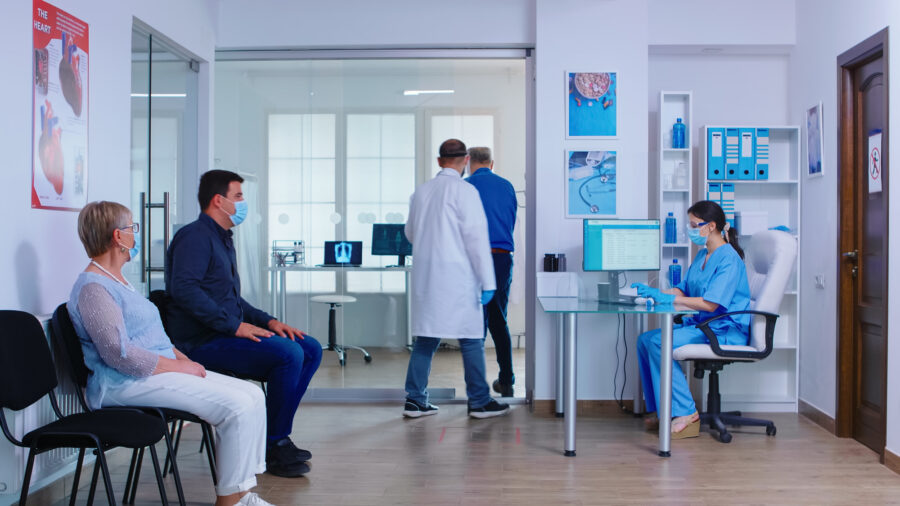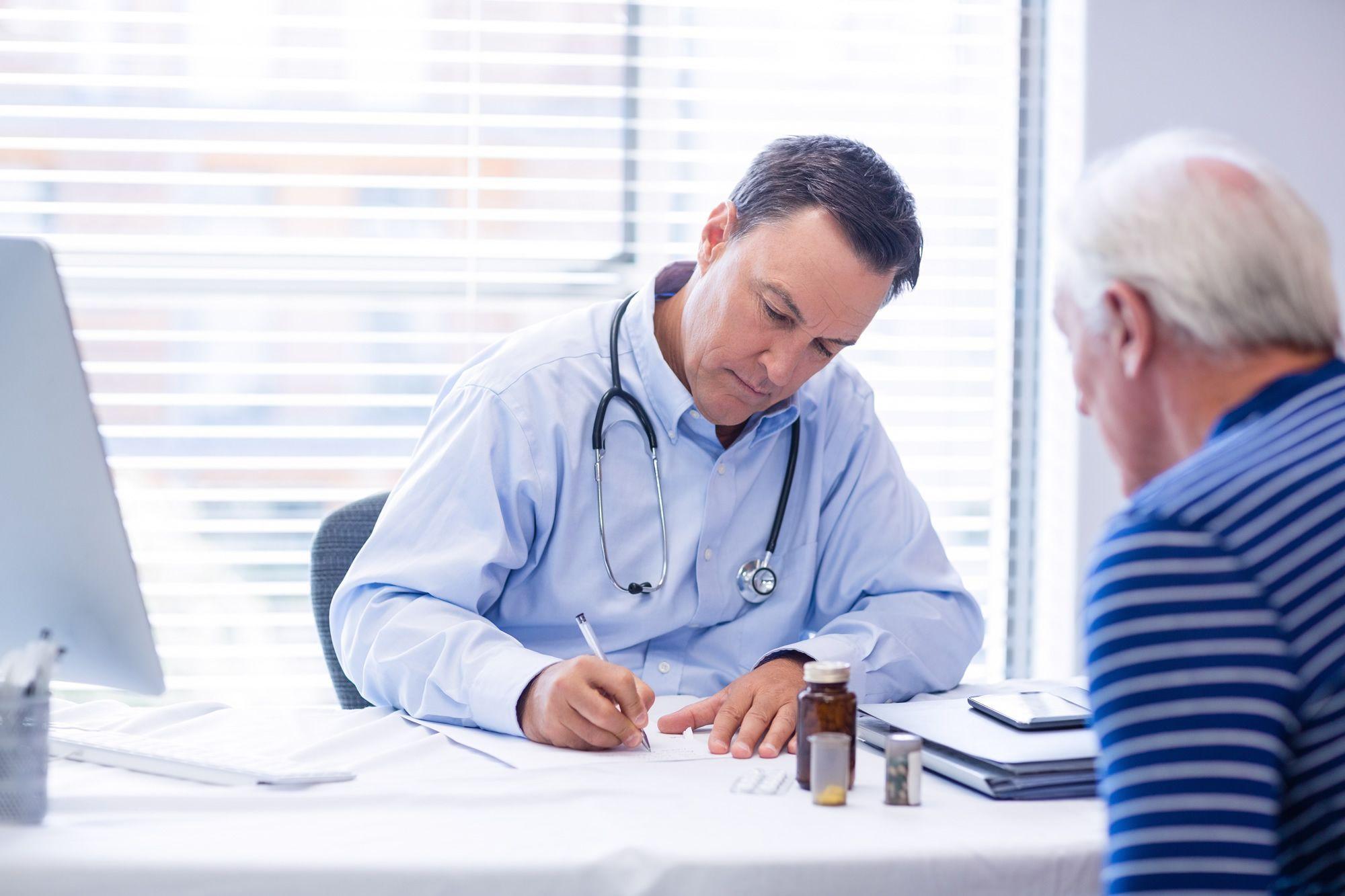As news sources have placed increasing emphasis on the impact of the pandemic on people’s health, non-COVID-19 health issues have somewhat receded from the spotlight, but they have not disappeared.
Waiting times for medical treatment have reached record highs, and thousands have had difficulties in accessing GP services. This is indicative of an amassing ‘hidden pandemic’: a wave of unaddressed physical health issues, exacerbated by the pre-existing underfunding of the NHS.
Treatment for cancer and dementia are among the services impacted by the pandemic. The national dementia diagnosis rate declined between February and July of 2020, falling below the national target.[1] Meanwhile, over 650,000 cancer patients in the UK (22%) have experienced disruption to their care because of COVID-19.[2] Cardiological care has also been affected, with a decline of over 50% in the number of patients presenting to cardiology.[3] Indeed, according to a study on COVID-19’s impact on cardiac services, ‘all areas of cardiology service provision sustained significant reductions.’[4]
“The backlog [for routine surgical procedures] is now enormous,” states a Surrey GP talking to Thrive4Life. “And in general practice I believe we are dealing with an extra 50% of patients compared to numbers before COVID-19, with patients often having very long waits for their hospital appointments.”
Thankfully, due to the success of the vaccines, the NHS is slowly returning to its former condition. However, it is clear that not only has the pandemic had a knock-on effect on NHS capacity to deal with non-COVID-19 issues, but also, as the Surrey GP adds, “a few people have definitely put off seeking medical help” for various reasons, which may be a contributing factor.
Why might people put off seeking medical help?
Mistaking symptoms for COVID-19
A consultant haematologist from the Royal Marsden Hospital informs us that “several patients stayed at home and presented late with leukaemia after thinking it was COVID”, while a report by Open Heart found that cardiology ward and coronary care unit (CCU) admissions saw a 53% reduction in chest pain/breathlessness presentations after the beginning of the first lockdown.[5]
Due to the prominent discussion of COVID-19 symptoms in current media, individuals may put symptoms, especially those related to the heart and lungs, down to the virus, rather than investigating other potential causes, even after having a negative COVID-19 test.
Fear of contracting COVID-19 in healthcare environments
A survey of almost 2,000 people conducted in May 2020 by The Health Foundation found that a sizeable minority of individuals (47%) would feel uncomfortable using their local hospital if the need arose. The key concern was listed as fear of exposure to coronavirus, with 76% stating this would be a cause of fear for them in a hospital environment and 63% saying the same for a GP practice.[6]
Healthcare professionals have seen this in practice: the Surrey GP noted that older people and carers of vulnerable people had been, and still to some extent continue to be particularly fearful of hospital environments.
Professor Sir Mike Richards, a trustee of Cancer Research UK and former national cancer director has also suggested that the decrease in hospital referrals for bowel cancer symptoms during the first wave “may have been linked to fear about catching the virus and to the government’s call to ‘stay at home’ and ‘protect the NHS’”.[7]
Guilt and fear of ‘Taking up Space’ or ‘Wasting Time’
Sir Mike Richards noted that “people in this country were much more worried about worrying their doctor or wasting the doctor’s time than they were in other countries.”[8] This is supported by further results of the Health Foundation’s survey: around 1 in 10 respondents said they would feel uncomfortable attending healthcare settings due to the additional pressure placed on health services.[9]
What barriers are being faced by the NHS?
Luckily, the Surrey GP says that although “initially people would stay away to not ‘waste’ medical time”, as restrictions ease “this now seems to be swinging the other way with patients very keen to seek advice.”
Yet even if individuals recognise a health problem and are willing to go to healthcare environments, they may be worried about the reality of doing so; 1 in 10 were not sure they would get an appointment at their GP practice (9%).[10] This worry is not entirely unfathomed – as Professor Sir Mike Richards noted, “GPs in the UK [were] less likely to refer patients to hospital services with suspected cancer when diagnostic services were under strain and lacked equipment and staff.”[11]
The Surrey GP explains that “the longer hospital waits are mainly down to the hospitals pretty much closing for routine outpatient appointments and surgery [e.g. hip and knee replacements, cataract surgery] during the COVID peaks,” resulting in the current backlog. In response to questions about patients staying away from GP practices, she reassures us that doctors are aware of “increased anxiety and social issues” and “have made it easier to contact the GP with telephone, online, or video appointments.”
 What you can do to protect your non-COVID-19 health
What you can do to protect your non-COVID-19 health
Don’t assume your symptoms are down to COVID-19
If you are experiencing heart and lung symptoms, and have had a negative COVID-19 test, get in contact with health services as you would have done before the pandemic.
Familiarise yourself with red flags for cancer
Cancer Research UK has produced an infographic guide to the early warning signs of cancer which can easily be found on their website,[12] but key symptoms to look for include a persistent cough, persistent change in bowel/bladder habits, nonhealing ulcer, persistent difficulty in swallowing, unexplained weight loss, unexplained lump, persistent unexplained pain, unexplained bleeding, and change in the appearance of a mole.[13]
Cover the basics
Socialising and communicating openly are vital to preserving your mental health, but the state of your body often has an underestimated impact on the state of your mind.
You can establish good physical health by maintaining good sleeping habits, drinking about 2 litres of water every day, eating 3 balanced, healthy meals a day, and doing at least 150 minutes of moderate intensity exercise per week, with a particular emphasis on cardiovascular exercise such as running or swimming.
The Surrey GP was extremely clear that avoiding obesity is one of the best things you can do to stay healthy, as obesity increases risk of high blood pressure, diabetes, heart disease, strokes, breathlessness, back pain, joint pains, cancer, depression, anxiety, and even COVID-19 deaths.
She went on to say that “Losing weight if overweight helps the NHS – it often saves medical time, reduces surgery and medication and saves money, and more importantly makes people happier and healthier.”
In the wake of the pandemic’s impact on diagnostic and treatment pathways, the Surrey GP’s overarching advice to the general public is to be proactive about your health.
She advised contacting your GP as soon as possible if you have significant concerns about physical or mental health, while remaining aware that staff are much busier than they were before COVID-19, without an increase in staff numbers.
“Please remember many things do settle with time and I suspect relatives or friends may well be able to offer reassurance and sensible advice,” she adds. Being clear about your symptoms when you talk, expressing your level of concern or discomfort, and preparing any questions before appointments is also important in ensuring effective communication.
Up-to-date NHS advice regarding using health services in the age of COVID-19 can be found online at the NHS website.
Thrive4Life is at your side in helping businesses safeguard employee health and wellbeing
Our training services include Line Manager Training, Wellbeing Champion Training and Mental Health First Aid. We can help your business with putting together a health and wellbeing promotion campaign. Our promotional services include educational webinars delivered by health and wellbeing experts, as well as health and wellbeing newsletters and other digital content.
- See our full list of training and promotional services.
References
- ‘Dementia: 65+ Estimated Diagnosis Rate: Purpose’, NHS Digital Data.
- ‘The Impact of Covid-19 on Cancer Care’, Macmillan UK, www.macmillan.org.uk/assets/forgotten-c-impact-of-covid-19-on-cancer-care.pdf.
- Fersia, O. S. et al., ‘The Impact of the Covid-19 Pandemic on Cardiology Services’, Open Heart 7.
- ‘The Impact of Covid-19 on Cancer Care.’ Macmillan UK.
- ‘The Impact of the Covid-19 Pandemic on Cardiology Services.’ Open Heart.
- ‘Latest NHS statistics Show More Is Needed to Ensure People with Cancer Get Treatment They Need’, The Health Foundation, www.health.org.uk/news-and-comment/news/latest-nhs-stats-show-more-is-needed.
- ‘Thousands of Patients May Have Undiagnosed and Untreated Bowel Cancer Due to Covid-19 Disruption’, University of Oxford, www.ox.ac.uk/news/2021-01-14-thousands-patients-may-have-undiagnosed-and-untreated-bowel-cancer-due-covid-19.
- Lay, K, ‘Fear of Bothering Doctor Blamed for Cancer Deaths’, The Times, https://ww.thetimes.co.uk/article/fear-of-bothering-doctor-blamed-for-cancer-deaths-tw6md00rf.
- ‘Latest NHS Statistics Show More Is Needed’, The Health Foundation.
- ‘Latest NHS Statistics Show More Is Needed’, The Health Foundation.
- ‘Fear of Bothering Doctor Blamed for Cancer Deaths’, The Times
- ‘Signs and Symptoms of Cancer’, Cancer Research UK, www.cancerresearchuk.org/about-cancer/cancer-symptoms.
- Sakthivel, M. et al., ‘Screening for Red Flag Symptoms of Cancer: A Community-Based Cross-Sectional Study from Urban Puducherry, India’, J Educ Health Promot 7, www.ncbi.nlm.nih.gov/pubmed/30788377.










